
Climate warming reduces organic carbon burial beneath oceans
A first-of-its-kind study suggests climate warming could reduce organic carbon burial and increase the amount of carbon that’s returned to the atmosphere.

Climate warming reduces organic carbon burial beneath oceans
A first-of-its-kind study suggests climate warming could reduce organic carbon burial and increase the amount of carbon that’s returned to the atmosphere.

More links aren’t necessarily better for hybrid nanomaterials
Chemists from Rice and the University of Texas have found more isn’t always better when it comes to packing charge acceptors atop nanocrystals.

DesRoches outlines 2023 goals to faculty
President Reginald DesRoches delivers his inaugural State of the University
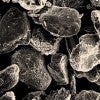
Rice flashes new life into lithium-ion anodes
Rice chemists use flash Joule heating to recover graphite anodes from spent lithium-ion batteries.
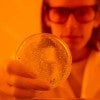
Pathogenic sensor’s surprising capabilities revealed
Rice synthetic biologists have uncovered new capabilities of a genetically encoded sensor that allows salmonella, E. coli and other pathogens to sicken millions of people each year.

US names two Rice students inaugural Quad Fellows
Two Rice graduate students are among the inaugural recipients of the Quad Fellowship.

Evelyn Tang, an assistant professor of physics and astronomy and a member of Rice University’s Center for Theoretical Biological Physics, has won a prestigious National Science Foundation CAREER Award.

Tropical wildlife follow the same daily patterns worldwide
A massive study of rainforest species across three regions of the world finds striking similarities in how animals spend their days.
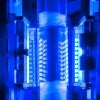
Rice lab’s catalyst could be key for hydrogen economy
A light-activated catalyst efficiently converts ammonia into clean-burning hydrogen using only inexpensive raw materials.
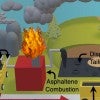
Rice turns asphaltene into graphene for composites
The flash Joule heating process developed at Rice turns asphaltenes, a byproduct of crude oil production, into graphene for use in composite materials.

Rice facility is ‘one-stop shop’ for customizing DNA to fight cancer
Rice bioengineers, synthetic biologists and cancer researchers celebrated the opening of Rice’s first CPRIT Core Facility, the Genetic Design and Engineering Center, or GDEC, Nov. 10 at the BRC.

Early planetary migration can explain missing planets
Computer simulations by Rice University scientists and their collaborators explain two puzzling observations of exoplanets orbiting distant stars.

Rice wins Moore Foundation grant for quantum vacuum research
Junichiro Kono’s lab will study how matter and quantum vacuums become entangled thanks to a new grant from the Gordon and Betty Moore Foundation.
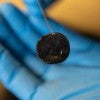
Bacterial sensors send a jolt of electricity when triggered
Rice researchers develop programmable bacteria that sense contaminants and release an electronic signal in real time.
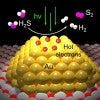
New catalyst can turn smelly hydrogen sulfide into a cash cow
Rice engineers and scientists and collaborators have discovered an efficient, one-step process for converting hydrogen sulfide gas into clean-burning hydrogen fuel.